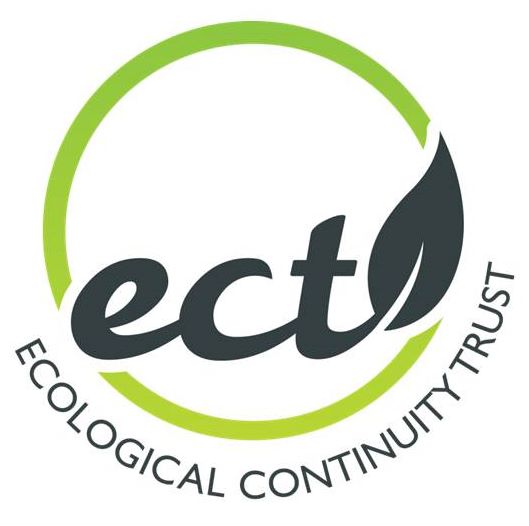Soil samples from hillsborough, N. Ireland have been used to look at soil carbon sequestration
The palace Leas LTE highlighted the importance of soil fertility on grassland productivity.
results from wardlow hay cop showed grassland soils are affected by base cation depletion and acidification which drives biodiversity loss.
ECT has recently forged a new strategic partnership with the British Society of Soil Science through which we have become a BSSS Member Organisation. Ahead of this year's World Congress on Soil Science in Glasgow in August, we invited BSSS Executive Officer Sarah Garry to offer her perspective on the importance of soil science, what the World Congress has in store for us, and how soil science and long-term ecological field experiments can be linked more closely.
As the British Society of Soil Science (BSSS) enters its 75th anniversary year, there are increasing calls on the world’s finite resources.
According to the Food and Agriculture Organisation (FAO) of the United Nations, over 95% of the food we eat comes directly from soil. Maintaining, and in some cases improving, our soil is imperative if we are to continue feeding a growing worldwide population, using the same, or fewer, resources. We know that sustainable soil management techniques (sometimes popularly referred to as ‘Regenerative Agriculture’) can have a positive impact on yield without having a negative impact on resources.
These techniques can also have a positive impact on climate change, perhaps the single biggest challenge humanity faces. BSSS was present at COP26 in Glasgow last November where we called on world leaders to:
protect and enhance existing carbon stores in permanent grasslands, moorlands, wetlands and woodlands
support the adoption of regenerative and sustainable soil management practices to increase soil carbon sequestration, improve soil health and resilience and the provision of financial incentives for these schemes
support and fund soil research and its dissemination
support global recognition and accreditation of soil scientists
ensure global reinforcement of soil regulation.
Our throwaway culture is also leading to major challenges: minuscule plastic particles have been found in human embryos (Environment International, 2021) as well as being found in the soil, as our Early Career members heard at a recent webinar from Dr Binoy Sarkar of Lancaster University.
Making the changes we need, whether for farming, climate change or pollution, on a global or local scale, will therefore need to be based on clear evidence.
This year, BSSS will host the World Congress of Soil Science from 31 July – 5 August at the SEC in Glasgow. Experts from around the world will come together to discuss the latest research and with over 1,500 delegates expected to participate by providing an oral or poster presentation. Keynote speakers will use the Congress to discuss the key global challenges which we are facing. Professor Debra Roberts, lead on sustainability and resilience functions in Durban, South Africa and co-chair of the IPCC Working Group II, will discuss land use in the 22nd century and Dr Ismahane Elouafi, the first Chief Scientist of the FAO of the United Nations, will use her keynote session to discuss global food security. We would encourage anyone with an interest in addressing these issues to attend the Congress in person or remotely.
To support soil scientists in delivering this clear research, the Ecological Continuity Trust’s (ECT) long-term experiment sites provide an ideal opportunity to undertake valuable soil-related research on any number of topics, including those linked to climate change and adaptation. With grassland, heath, woodland, bog and freshwater sites across the UK, the ECT's network of 37 currently active sites provides a wealth of untapped potential to provide scientific evidence which could have impact on our ability to deliver solutions to some of the major challenges facing the modern world. For our members who work in research, ECT’s Small Grants of up to £3k per research project provide a further incentive for researchers to use one of the Trust’s sites across the UK for the basis of their field work.
We know how important long-term experiments are in understanding the evidence. Recent projects at ECT sites have demonstrated economic benefits to water utilities and consumers via cost savings realised through a better understanding of moorland management in a drinking water catchment, and societal benefits through Government intervention in the upland management of blanket bog, yielding improvements in habitat and associated ecosystem services.
The World Congress of Soil Science will also include a policy day, aimed at policymakers and demonstrating how scientific evidence can be used to shape policy and best practice for the benefit of all. Turning evidence into policy is key if we plan to address the issues facing our natural world over the coming decades.
About the Author
Sarah Garry is Executive Officer of the British Society of Soil Science (BSSS), an established international membership organisation committed to the study of soil in its widest aspects. The Society brings together those working within academia, practitioners implementing soil science in industry and all those working with, or with an interest in soils.
Dr Bruce Lascelles, President of BSSS, will join ECT for their webinar on Friday 18 March from 12.30-1.30pm to discuss the topic, Engaging more soil scientists in long-term ecological field experiments, a potentially under-used resource.
The views expressed in this blog do not necessarily represent the views of BSSS.






